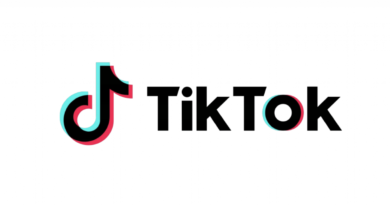8 Types of Internet Marketing Strategies
Do you know what types of internet marketing techniques are available and how they can help your company grow? Digital marketing tactics are cited as the most efficient and cost-effective ways to promote a company and lead generation in every conversation about business promotion. Until you can put these techniques to work for your company, you must first recognize what each one entails and what benefits they provide. Here is a fast guide to the top nine styles of online marketing techniques to even get you started marketing your company online.
SEO (Search Engine Optimization)
The term “search engine optimization” refers to the process of optimizing a website for search engines. In simple terms, it’s the method of enhancing the website’s exposure for related searches. The higher your pages’ exposure in search results, the more probable you are to gain attention and attract new and existing customers to your business. Plugins are used by search engines like Google and Bing to crawl the web, moving from site to site, gathering information about certain sites, and indexing them. Then, using hundreds of keyword phrases or indicators, equations evaluate pages throughout the index to decide the order in which they should appear in search results for a given query. Elements of the consumer experience can be proxied by search ranking variables. Our Periodic Table of SEO Factors divides the variables into six groups and weights them according to their overall value to SEO. Content optimization factors like content quality and keyword analysis, also crawlability and mobile-friendliness, are significant site architecture factors. The search techniques are intended to bring up important, authoritative pages and provide a quick search experience for users. These strategies will help your pages rank higher in search engines if you optimize your site and material with them in mind. You can’t even pay search engines to get organic matter search scores, except paid search ads. Since people perform billions of searches every year, often with business intent to find knowledge about goods and services, SEO is a critical component of online marketing. Brands’ main source of digital traffic is mostly search, which is supplemented by other marketing platforms. A higher ranking in search engine results than your competitors can have a significant effect on the bottom line. Search results, on the other hand, have developed in recent years to provide users with more concise responses and information, which are more likely to keep users on the results page instead of redirecting them to other websites.
SEM (Search Engine Marketing)
SEM (search engine marketing) is the method of gaining website traffic through paid search (Pay Per Click ads). Previously, SEM was used as a catch-all word for both SEO and paid quest. With the evolution of the online marketing industry, the word SEM has come to refer specifically to paid search operations, rather than all forms of internet marketing strategies. In an extremely competitive world, search engine marketing, or SEM, is one of the most successful ways to develop your business. It will never be more relevant to advertise online, and search engine marketing is the most successful way to sell your goods and expand your company, with millions of businesses all competing for the same eyeballs. Advertisers bid on keywords that users of search engines like Google and Bing would type in while searching for specific goods or services, giving them the chance to have their ads appear alongside the results for those queries. These advertisements, also known as pay-per-click ads, are available in a range of formats. Product listing ads (PLAs, also known as Shopping ads) are more visual, product-based advertising that enables consumers to see essential details at a glimpse, such as cost and reviews. The strongest point of search engine marketing is that it allows marketers to position their advertisements in front of motivated consumers who are ready to buy at the exact moment they are ready to buy. There is no other advertisement tool that can do this, which is why search engine marketing is such a strong and profitable way to develop your business. As part of your keyword management strategy, you must perform extensive research before choosing which keywords to be used in your search engine marketing campaigns. To begin, you must first define keywords that are important to your company and that potential people are likely to use when looking for your services and products. Using WordStream’s Free Keyword Tool is one way to do this.
PPC (Pay Per Click or Pay Per Call)
Pay-per-click and paid digital platforms are the two main types of PPC marketing. Companies are paid every time their ad is clicked after it is published on search engines or social media sites. The most common search ads platform is Google AdWords, which is preceded by Bing Advertising, which also features search ads on Yahoo. Display, mobile, retargeting/remarketing, and paid social ads are also used in online advertising. Facebook, Twitter, Instagram, and other social media sites have increased their ad offerings, making organic perceptions of marketing posts more complicated. As a result, paying social now accounts for a larger portion of most businesses’ PPC ad spend budgets. PPC strategies will result in a significant increase in exposure and sales in the short term.
Email Marketing
Email marketing allows you to interact with your audience to support your business and boost sales. You can use emails to sell goods, exchange news, reduce cart abandonment, or say a story, among other items. Instead of delivering direct mail via the mail, you can use email to deliver it electronically. Collect email addresses from customers via transactions or website sign-ups, and use them to send essential information, promote purchases, and create relationships. Email helps you to communicate with consumers on a one-on-one basis. Email marketing had a conversion rate of 2.5 percent, compared to just 1.1 percent for social media, according to a 2019 retail report that looked at over one billion shopping sessions. (Direct referral had the highest conversion rate, at 3.0%.). Email is often cited as a “more powerful substitute” for direct mail marketing because it allows you to instantly access a large network of consumers with emails, advertisements, or reminders. Email marketing can be highly targeted by segmenting lists based on demographics and other data to achieve the best results.
Affiliate Marketing
Affiliate marketing is the practice of making money by endorsing or advertising the goods or services of other businesses. Affiliate marketing may be a common strategy for generating substantial online revenue and driving sales. The recent drive toward less conventional marketing strategies has proven to be extremely beneficial to both brands and affiliate marketers. Affiliate marketing typically entails promoting a product through a blog or video, as well as placing advertisements on the website. Any transaction made through your links results in a payment to you.
Affiliate marketing works by distributing product marketing and production responsibilities among parties, allowing companies to tap into the skills of a wide range of people for a more successful marketing campaign while rewarding contributors with a cut of the profits. Three parties should be interested in this to work:
- Sellers and developers of products.
- The advertiser or partner.
- The consumer.
Affiliate marketing is an overwhelming appeal for those looking to boost their online profits. It is a fast and easy way to make money without any of the hassles of actually selling a product. However, how does an affiliate get compensated after connecting a seller with a customer?
It’s possible that the response would be complicated.
The customer doesn’t necessarily need to purchase the merchandise so as for the affiliate to receive a commission. The affiliate’s contribution to the seller’s revenue will be calculated differently depending on the program.
Content Marketing
Content marketing, according to Moz, is the production and dissemination of appropriate, useful content to engage with consumers and achieve marketing objectives. Instead of selling, content marketing techniques concentrate on engaging with consumers, delivering content that educates, amuses, or otherwise offers value to customers regularly to attract and maintain a particular desired audience. Content refers to virtually any type of online content, including blogs, videos, podcasts, Instagrams, social media posts, and more. SEO, PPC, social media marketing, email marketing, and other forms of online advertising campaigns all depend on high-quality content.
Go back and read the content marketing concept, but this time omit the words “appropriate” and “valuable.” That’s the difference between content marketing and the other nonsense you get from corporations attempting to sell you “things.”
Companies constantly give us information; the problem is that much of it is irrelevant or useless (can you say spam?). That’s why, in today’s world with thousands of marketing campaigns per person per day, content marketing is so appealing. The cornerstone of almost any form of online customer interaction is content. Content assists customers in making choices from search and discovery to consideration and conversion. The cornerstone of almost any form of online customer interaction is content. Content assists customers in making choices from search and discovery to consideration and conversion.
SMM (Social Media Marketing)
Social media marketing has been one of the most important and fundamental ways of internet marketing in recent years. SMM is a fantastic tool to use if you want to sell items, market services, increase brand awareness, or support your blog or website. Social networks, with over 2 billion active users, offer an outstanding forum for all. Furthermore, it offers some unique benefits that no other form of internet marketing can match. The ability to gather your target audience at your generated brand pages, engage with them directly, and gradually cultivate the leads before you are ready to make the sales pitch is one of the greatest perks of using social media marketing. The way we work as a community, and how we interact with one another, has changed as a result of social media. Businesses took notice as sites like Facebook, Twitter, and Instagram grew in popularity. They began to use social media ads to promote their interests on these platforms. This is because these websites can influence consumer behavior. Marketers may use a spread of techniques and methods to spread content and obtain people to interact with it on social media websites. Many social media platforms allow users to supply comprehensive geographic, demographic, and private data, allowing advertisers to tailor their messages to what users are most presumably to reply to.




